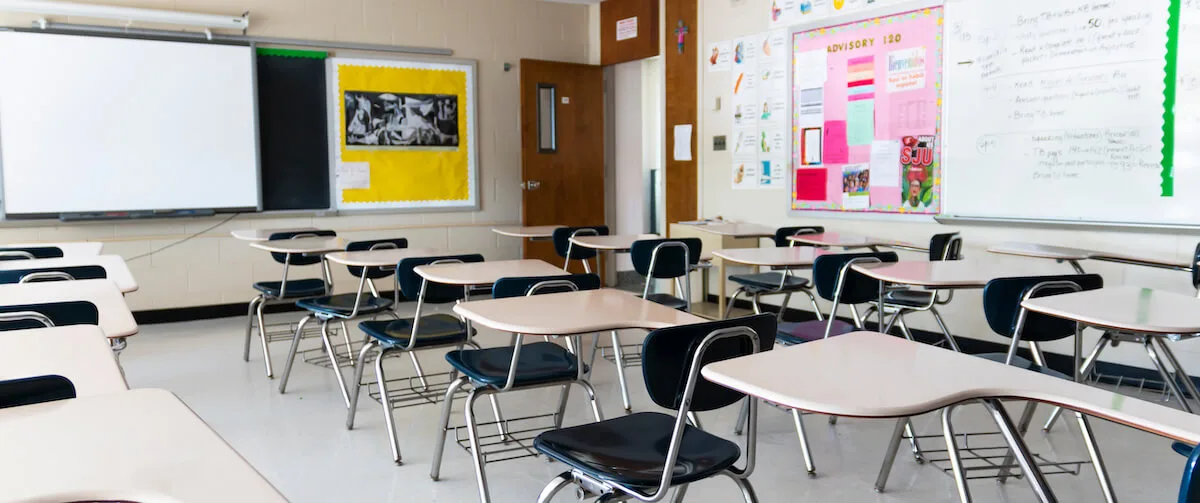
Image via Shutterstock
A 2017 law from the Republican-controlled Legislature bans school districts from getting increases in minimum state aid for three years if they had a failed referendum.
When Democratic Gov. Tony Evers and Republican legislators struck a billion-dollar deal on increased school funding, there was bipartisan—though far from unanimous—satisfaction and anticipation of financial stability, but it has since been discovered that a 2017 state law is standing between many school districts and better budgets.
The Republican-controlled Legislature passed—and former Gov. Scott Walker approved—a law that penalizes school districts that went to voters and asked for increased spending levels but were turned down. Such districts are not able to access any increases in the minimum state funding allowance for three years—even if a referendum failed by a single vote.
The resulting “penalty box,” educators say, is one of several reasons why many school districts cannot take advantage of this year’s agreement to add approximately $1.2 billion in total spending to public education.
According to new estimates from the state Department of Public Instruction, 164 of Wisconsin’s 421 school districts (39%) will receive less state aid than in the last school year, despite the increased overall funding for education and a record $7 billion state budget surplus.
“The way that aid is distributed across districts is subject to a formula that at its heart is unfair,” said Heather DuBois Bourenane of the Wisconsin Public Education Network. “We were in a position as a state where we could have made real strides toward closing those gaps. Instead we’ve done things that are only going to make some of our existing problems worse. Wisconsin has too many serious challenges right now to fool around with this kind of budgeting.”
Beloit School District Superintendent Dr. Willie Garrison II told UpNorthNews Radio he understands the complexities of working with so many laws and formulas, but the new funding package makes a challenging situation worse.
“The state in many different ways has tried to help and support this biennial budget,” Garrison said. “No one is saying they didn’t try. But in this case, what was presented actually hurt the school district of Beloit.”
As Republican legislators discovered their school districts stand to lose money despite the statewide increase, sentiment began building for a bill to remove the penalty box for a failed referendum. Some Democratic lawmakers have signed on as co-authors, but not before pointing out that Gov. Evers proposed eliminating the 2017 language in his state budget bill and that Democrats put forward a similar amendment during debate on the state budget bill—both of which Republicans rejected.
There is no word from Republican leadership on whether the bill will be taken up this fall.
“What’s really being drawn out here are all the ways some of the districts who really need state support the most are getting nickeled and dimed by these moves in a way that is going to have dramatic negative impact on our kids,” Bourenane said. “We need to focus our attention and our resources on meeting kids where they are and providing districts with the support they need to do that.”
Support Our Cause
Thank you for taking the time to read our work. Before you go, we hope you'll consider supporting our values-driven journalism, which has always strived to make clear what's really at stake for Wisconsinites and our future.
Since day one, our goal here at UpNorthNews has always been to empower people across the state with fact-based news and information. We believe that when people are armed with knowledge about what's happening in their local, state, and federal governments—including who is working on their behalf and who is actively trying to block efforts aimed at improving the daily lives of Wisconsin families—they will be inspired to become civically engaged.


New Biden rules deliver automatic cash refunds for canceled flights, ban surprise fees
In the aftermath of a canceled or delayed flight, there’s nothing less appealing than spending hours on the phone waiting to speak with an airline...

One year on the Wienermobile: The life of a Wisconsin hotdogger
20,000+ miles. 16 states. 40+ cities. 12 months. Hotdogger Samantha Benish has been hard at work since graduating from the University of...

Biden makes 4 million more workers eligible for overtime pay
The Biden administration announced a new rule Tuesday to expand overtime pay for around 4 million lower-paid salaried employees nationwide. The...

‘Radical’ Republican proposals threaten bipartisan farm bill, USDA Secretary says
In an appearance before the North American Agricultural Journalists last week, United States Department of Agriculture (USDA) Secretary Tom Vilsack...





